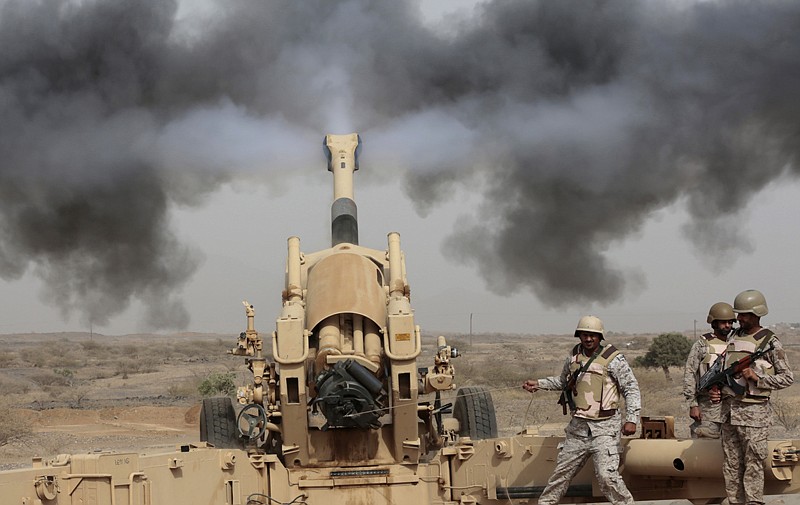DUBAI, United Arab Emirates-Saudi Arabia's offer to send troops to fight Islamic State in Syria is as much about the kingdom's growing determination to flex its military might as it is about answering U.S. calls for more help from its allies in the Middle East.
A Saudi deployment runs the potentially explosive risk of confrontation between one of the Arab world's most powerful militaries and forces keeping Syrian President Bashar Assad in power. That's if the Saudi proposal even gets translated into action.
Just putting the offer on the table gives the Saudis an opportunity to show leadership in addressing U.S. concerns that its regional allies aren't doing enough to fight IS. It also puts pressure on Washington to do more as Defense Secretary Ash Carter and allied defense ministers gather in Brussels this week for talks on confronting the extremists.
Brig. Gen. Ahmed Asiri, the Saudi military spokesman, made clear the kingdom's offer is contingent on the support of the U.S.-led coalition battling the militant group in Iraq and Syria. Saudi Arabia and the United Arab Emirates, which also has offered to deploy ground forces, are part of the coalition but have eased up on their contributions to the air campaign after earlier, high-profile sorties over Syria.
In Washington, Saudi Foreign Minister Adel al-Jubeir implied Monday that his country's willingness to send special forces to Syria was contingent on the U.S. leading the ground effort.
"The coalition will operate the way it has operated in the past, as an international coalition, even when there is a ground-force contingent in Syria," al-Jubeir told reporters after meeting U.S. Secretary of State John Kerry.
"The U.S. is leading the international coalition against ISIS in Syria," he said, declining to discuss potential Saudi troop numbers, deployment dates or targets. "There would be no international coalition against ISIS in Syria if the U.S. did not lead this effort."
Saudi Arabia is far more focused on another war even closer to home. In Yemen, a Saudi-led coalition heavily supported by the Emirates is battling Iranian-backed Shiite rebels and a former president's supporters who control the capital of Sanaa and other parts of the impoverished country.
The Yemen intervention highlights Saudi Arabia's growing assertiveness since King Salman's ascension to the throne just over a year ago, along with the rise of his son, Prince Mohammed bin Salman. The 30-year-old prince was named by his father as defense minister and second-in-line to be king.
Prince Mohammed has announced the creation of a Saudi-based Islamic military alliance intended to fight terrorism. The bloc includes much of the Sunni Arab world, several African and Asian countries, as well as NATO member Turkey. Not included are IS front lines Syria and Iraq, or Saudi Arabia's chief rival, Shiite powerhouse Iran.
"The Salman doctrine is about projecting power and military strength," said Dubai-based geopolitical analyst Theodore Karasik, who believes the Saudis' offer for troops in Syria could portend other military expeditions in the region. "It may be looking for leverage, but it's also very serious," he said.
While the Saudis say their aim is to fight IS, the timing of the kingdom's announcement raises questions about its motives.
Russia's intervention in Syria has sharply altered the military landscape, routing Saudi-backed rebels from key areas in the north and giving Assad the upper hand. Prospects for any meaningful peace talks appear to be dwindling by the day.

